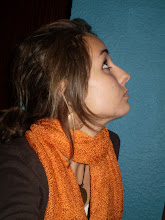The natural beauty of Cullera’s beach.
I love the beach.
Lie on the sand, touching it, feeling it.
Smell the particular scent of the salt mixed with the sea water.
Feel the coolness of the sea breeze against my skin. Close my eyes and enjoy with that sensation.
The sun, big, beautiful and impressive, is radiating heat towards me, and my skin.
The sky, clean, blue, huge… Makes you feel relaxed.
You can fall asleep and have the most beautiful dreams you can ever imagine, because you can hear the waves breaking in the sand, constantly moving and moving, relaxing you at all.
You can get up, slow, very slow… And look at the sand, the sky, the water and the people feeling like you. You can start walking along the sand and see your feet prints taxed on the smooth sand… And arrive to the sea shore, put your feet into the water and feel the coolness of it. You can walk in the water and go inside it…
… Can you feel just like me?
I love the beach.
Lie on the sand, touching it, feeling it.
Smell the particular scent of the salt mixed with the sea water.
Feel the coolness of the sea breeze against my skin. Close my eyes and enjoy with that sensation.

The sun, big, beautiful and impressive, is radiating heat towards me, and my skin.
The sky, clean, blue, huge… Makes you feel relaxed.
You can fall asleep and have the most beautiful dreams you can ever imagine, because you can hear the waves breaking in the sand, constantly moving and moving, relaxing you at all.
You can get up, slow, very slow… And look at the sand, the sky, the water and the people feeling like you. You can start walking along the sand and see your feet prints taxed on the smooth sand… And arrive to the sea shore, put your feet into the water and feel the coolness of it. You can walk in the water and go inside it…
… Can you feel just like me?
Credits: http://es.wikipedia.org/wiki/Cullera








